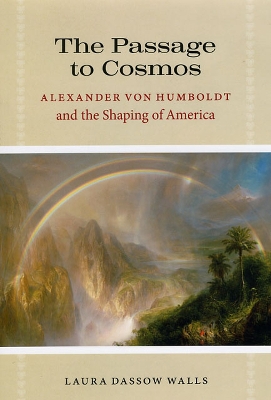Explorer, scientist, writer, and humanist, Alexander von Humboldt was the most famous intellectual of the age that began with Napoleon and ended with Darwin. With "Cosmos", the book that crowned his career, Humboldt offered to the world his vision of humans and nature as integrated halves of a single whole. In it, Humboldt espoused the idea that, while the universe of nature exists apart from human purpose, its beauty and order, the very idea of the whole it composes, are human achievements: cosmos comes into being in the dance of world and mind, subject and object, science and poetry. Laura Dassow Walls here traces Humboldt's ideas for "Cosmos" to his 1799 journey to the Americas, where he first experienced the diversity of nature and of the world's people - and envisioned a new cosmopolitanism that would link ideas, disciplines, and nations into a global web of knowledge and cultures. In reclaiming Humboldt's transcultural and transdisciplinary project, Walls situates America in a lively and contested field of ideas, actions, and interests, and reaches beyond to a new worldview that integrates the natural and social sciences, the arts, and the humanities.
- ISBN10 0226871827
- ISBN13 9780226871820
- Publish Date 1 August 2009
- Publish Status Active
- Publish Country US
- Imprint University of Chicago Press
- Format Hardcover
- Pages 424
- Language English
- URL http://wiley.com/remtitle.cgi?isbn=9780226871820
